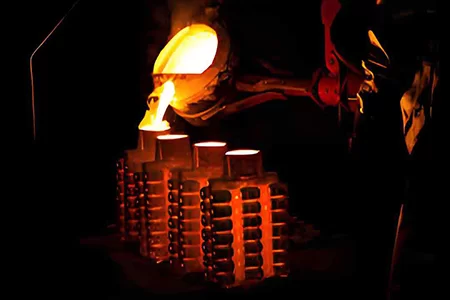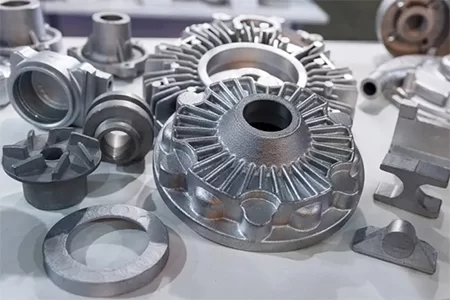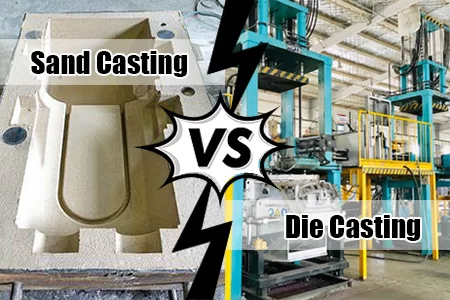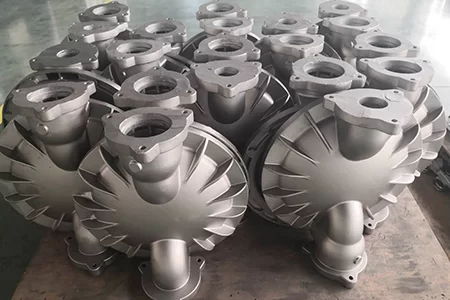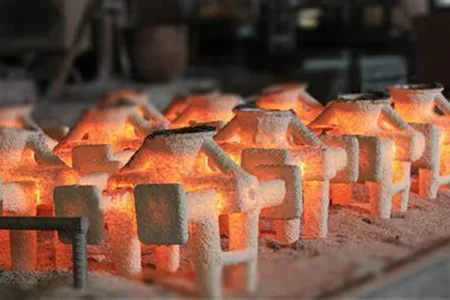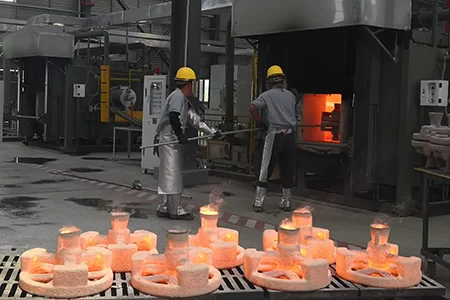
How to Find A Cost-Efficient Metal Casting Manufacturer?
-
Home>
-
Blog>
-
Technology>
How to Find A Cost-Efficient Metal Casting Manufacturer?
Metal casting is a crucial process in a wide range of industries, from automotive and construction to aerospace and machinery. Whether you’re developing a complex machine component or simple structural parts, choosing the right metal casting manufacturer can significantly impact your product quality, lead times, and - perhaps most importantly - cost efficiency.
But cost-efficiency doesn't simply mean finding the cheapest supplier. A truly cost-efficient metal casting manufacturer balances quality, production capabilities, consistency, and pricing. In this article, we’ll explore how to find such a partner by breaking down the most critical aspects you should evaluate before making your choice.
Understand What “Cost-Efficient” Truly Means
Before initiating your search, it’s essential to define what cost-efficiency means for your specific project. Consider these factors:
Initial Quotation: The upfront price of the casting service.
Material Optimization: Are they helping you reduce material waste or recommending alternatives?
Yield Rates: Low scrap rates result in fewer defective parts and reduce rework or replacements.
Tooling and Mold Costs: Some manufacturers absorb or amortize these costs differently.
Total Cost of Ownership (TCO): Consider post-delivery quality issues, lead time impacts, logistics, and ongoing service.
Choosing a cost-efficient casting manufacturer is not just about cutting costs upfront - it’s about achieving long-term value.
Evaluate Technical Capabilities and Casting Processes
Not all casting processes are created equal. Sand casting, investment casting, die casting, and shell molding each come with their own cost structures and suitability for different part geometries and materials.
When evaluating manufacturers, ask:
What types of casting processes do they offer?
Do they have the flexibility to adapt based on your product requirements?
Can they handle both small-batch and high-volume orders efficiently?
What materials can they work with—aluminum, iron, stainless steel, brass, etc.?
A manufacturer that offers multiple casting methods can often recommend the most cost-effective approach for your parts.
Investigate Quality Control Systems
Low cost means nothing if quality is compromised. A cost-efficient supplier must deliver consistent and defect-free parts.
To evaluate quality assurance:
Is the manufacturer ISO 9001 or IATF 16949 certified?
Do they conduct full material testing (e.g., tensile strength, hardness, chemical composition)?
Are inspection reports (like 3.1 certificates, CMM reports, or visual checks) regularly provided?
Do they have internal QC teams and traceability systems?
Long-term cost efficiency is only achievable if defective rates remain low, reducing the need for rework, delays, and customer complaints.
Ask About Tooling & Mold Costs
Tooling is a major expense in any casting project, especially for custom parts. Some manufacturers offer:
Free or shared mold development for long-term partners.
Reusable tooling options to reduce total project cost.
Flexible payment terms (e.g., amortized over large production volumes).
Understanding a manufacturer’s tooling policy is essential, as this is often a hidden cost that affects overall budgeting.
Consider Location and Logistics
The manufacturer's location can impact shipping costs, delivery time, and communication efficiency.
Domestic vs. Offshore: Offshore manufacturers may offer lower production costs but slightly longer lead times.
Supply Chain Efficiency: Can they coordinate packaging, warehousing, and international freight?
Shipping Options: Do they work with experienced logistics providers to ensure safe and timely delivery?
An efficient logistics setup can reduce hidden costs related to delays, damaged goods, or customs complications.
Verify Past Experience and Client Base
A manufacturer with experience in your industry is likely to understand your specific standards and performance requirements.
Do they have clients in the automotive, aerospace, agricultural machinery, or marine sectors?
Can they provide case studies, client references, or third-party reviews?
Have they successfully served markets with strict compliance, like the EU or North America?
This background offers reassurance that the manufacturer understands both technical expectations and international business practices.
Request and Compare Quotations Strategically
Don't just compare quotes line-by-line. Instead, ask for a detailed breakdown that includes:
Unit cost
Tooling/mold fee
Lead time
Shipping method and cost
Payment terms
After-sales service (e.g., returns, defect handling)
A manufacturer with transparent pricing and flexible terms is more likely to deliver value beyond just a low unit price.
Visit the Factory or Request Virtual Audits
Whenever possible, conduct an on-site factory audit or request a virtual tour. This helps you evaluate:
Cleanliness and organization of the facility
Production line capabilities
Worker training and safety protocols
Real-time QA practices
Seeing how a manufacturer operates behind the scenes can be more insightful than any PDF brochure.
Build Long-Term Partnerships for Better Pricing
Once you've found a reliable, cost-efficient partner, building a long-term relationship can further reduce your costs:
Manufacturers may offer volume discounts or exclusive rates for loyal clients.
You can co-develop more efficient tooling and optimize recurring orders.
The supplier will better understand your technical requirements over time, reducing back-and-forth and errors.
Rather than hopping between cheap vendors, nurturing a relationship with a trusted manufacturer is the real key to sustainable savings.
Conclusion
Finding a cost-efficient metal casting manufacturer is not just about finding the lowest price - it's about choosing a partner who can deliver consistent quality, technical expertise, and reliable support while helping you control total project costs. By evaluating a supplier's production capabilities, quality control systems, long-term service value, etc., you can make a smart decision that benefits your business in the long run.
Hulk Metal stands out as a reliable and cost-efficient metal casting manufacturer that checks all these boxes. With a full range of casting processes, in-house engineering expertise, ISO-certified quality systems, and competitive pricing structures, we help clients reduce production costs without compromising performance or reliability. Whether you need small-batch prototypes or high-volume production, Hulk Metal is committed to delivering value at every step of your project.
Looking for a metal casting partner that’s both affordable and dependable? Hulk Metal is ready to support your next project.
Article Navigation
Article Navigation
Industries
Foundries
-

April.01, 2025
What Factors Should Be Considered When Choosing A Metal Casting Method?
READ MORE
-

March.28, 2025
Everything You Need to Know About Die Casting!
READ MORE
-

March.26, 2025
Sand Casting vs. Die Casting: Which is Right for Your Project?
READ MORE
-

March.10, 2025
Achieving Precision in Metal Casting: Key Strategies for High-Quality Casting Parts
READ MORE
-

March.03, 2025
Addressing Defects in Castings: A Comprehensive Guide
READ MORE
-

February.25, 2025
How to Compare Product Quality Between Different Casting Foundries?
READ MORE



